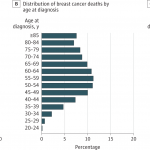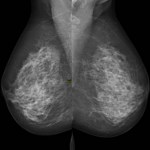overtreatment
A frequent topic of discussion on this blog is the concept of overdiagnosis. It’s a topic I’ve been writing about regularly since around 2007 or so and is defined as the detection in an asymptomatic person of disease that, if left alone, would never progress to endanger that person’s life or well-being within his or her lifetime. The problem with overdiagnosis is that it pretty much always leads to overtreatment, the treatment of overdiagnosed disease that is not health- or life-threatening. The key shortcoming in our knowledge that leads to overtreatment is that, once we detect disease with…
One of the things that feels the weirdest about having done the same job, having been in the same specialty, for a longer and longer time is that you frequently feel, as the late, great Yogi Berra would have put it, déjà vu all over again. This is particularly true in science and medicine, where the same issues come up again and again and again, often with the same arguments on either side. Sometimes the same players are even involved. So it is with mammography recommendations. Indeed, I'm feeling déjà vu all over again right now, as I read headlines like Women advised to get mammograms later…
I've written more times than I can remember about the phenomenon of overdiagnosis and the phenomenon that is linked at the hip with it, overtreatment. Overdiagnosis is a problem that arises when large populations of asymptomatic, apparently healthy people are screened for a disease or a condition, the idea being that catching the disease at an earlier stage in its progression will allow for more successful treatment. Two prominent examples include—of course—screening for breast cancer with mammography and screening for prostate cancer with prostate-specific antigen (PSA) testing, and I've…
Mammography is a topic that, as a breast surgeon, I can't get away from. It's a useful tool that those of us who treat breast cancer patients have used for over 30 years to detect breast cancer in asymptomatic women and thus (or so we hope) decrease their risk of dying of breast cancer through early intervention. We have always known, however, that mammography is an imperfect tool. Oddly enough, its imperfections come from two different directions. On the one hand, in women with dense breasts its sensitivity can be maddeningly low, leading it to miss breast cancers camouflaged by the…
As I write this, I am winging my way home from the 2014 meeting of the American Association for Cancer Research (AACR, Twitter hashtag #AACR14) in San Diego. (OK, I'm revising this to fit the format and, of course, the Insolence of this particular blog. Shockingly, I didn't have as much time to blog in San Diego as I had thought I would. Go figure.) Basically, the AACR meeting is one of the largest meetings of basic and translational cancer researchers in the world. I try to go every year, and pretty much have succeeded since around 1998 or 1999. As an "old-timer" who's attended at least a…
I think the message may finally getting through.
That message is that it's not always the best strategy to treat cancer aggressively. Don't get me wrong. If I have acute leukemia, I know I'll need the big guns, every bit of chemotherapy appropriate to the disease that modern oncology can throw at it up to and including a bone marrow transplant. But what about prostate cancer? Breast cancer? Thyroid cancer? It turns out that more treatment isn't always better for these diseases, depending on the subtype, and in some cases, such as early stage prostate cancer of low aggressiveness, it is quite…



